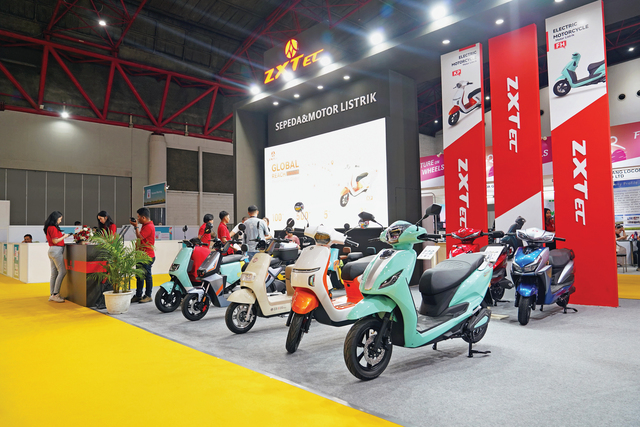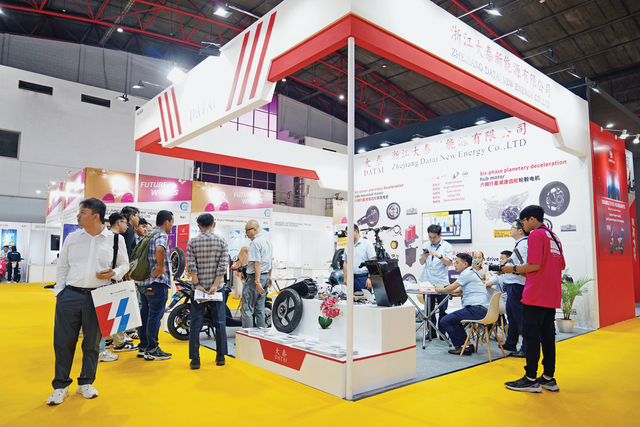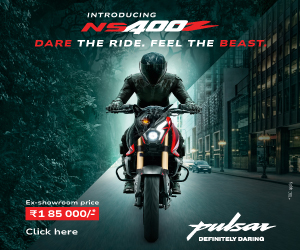This was the first time we attended an auto show comprising only electric vehicles. Given that the world is shifting in that direction, here is what we may expect.

Story: Joshua Varghese
Photography: Asiabike Jakarta
Jakarta, the capital city of Indonesia, is considered the gateway to the ASEAN market for many businesses, including passenger vehicles, so Asiabike Jakarta was held in the right place and since the regional governments are pushing electric vehicle (EV) adoption faster than one can say “hybrid”, their timing was good too.




Asiabike’s association with the PERIKLINDO Electric Vehicle Show (PEVS) enabled them to make good use of the massive Jakarta International Expo property over six days to showcase EVs exclusively. Indonesia’s traffic (although more disciplined) is similar to ours because two-wheelers form the majority of road-users, which is true for most countries that are part of the ASEAN. So, customers’ and businesses’ footfall was abundant. What was encouraging was the presence of interested parties from other countries as well, including potential customers, business representatives, and start-ups.
The massive venue played host to as many as 140 international exhibitors and they managed to attract a whopping 12,960 visitors from over 20 countries and regions. We were at the show for the first couple of days and it was enough to gauge its popularity. Unlike auto shows for enthusiasts where product displays and upcoming launches take precedence, Asiabike Jakarta’s focus was on boosting businesses and supporting their entry into the Indonesian market which is gearing up to promote EV adoption. A similar stance can be expected from the neighbouring countries too. Participants were looking to leverage the platform to tap into the immense EV potential in the ASEAN market.




Walking through the dedicated hall for two-wheelers, we came across familiar manufacturers and new players as well. The former included Japanese giants Honda and Kawasaki. While Honda chose to display only their scooters along with their e: Swap technology, Kawasaki’s stall showcased the electric Ninja e-1 and the Z e-1 which, interestingly enough, were the only electric motorcycles by a major manufacturer. Above all, a Vietnamese brand also had a pavilion where it exhibited its scooters, including a maxi-scooter, which most Indonesian visitors found interesting. The rest of the hall was dominated by Chinese brands, including Sunra and ZXTec. In fact, some of them have already begun investing in infrastructure in Indonesia. Of course, it should strengthen their first-mover advantage.




The show was not restricted to two-wheelers; a number of ancillaries were present too. From hub motors to batteries to tyres, Asiabike provided a platform for manufacturers and suppliers to exchange information and even set up collaborations for the future. Sourcing parts from the right supplier makes all the difference when trying to price products competitively for a new market.
Furthermore, the organizers had also arranged a dedicated indoor test-ride zone within the hall which gave visitors a cool and safe space to experience some of the two-wheelers on display without having to endure the humid tropical weather of Jakarta. They also had a dedicated forum where industry experts, manufacturers, and suppliers could address the gathering. That was something unique to Asiabike Jakarta because we have not seen such a platform at most motor shows. Everything from inventions to industry knowledge was discussed and since they had live translation, language was not a barrier even for someone like me who had to rely exclusively on English to communicate.
Exhibitors and visitors left with a positive experience overall because the event enabled them to make new contacts, explore new businesses, find new suppliers, and so on. Given that the show is still in its nascent stage and that the EV market in Indonesia and other ASEAN markets is on the rise, the time may just be right for other EV manufacturers to participate in this event next year.




Some of the Indian EV manufacturers are doing quite well at home. Their products are well-engineered and built to global standards. In fact, some of them have already begun selling overseas. The Asiabike Jakarta show in 2026 could be a good launchpad for them to gauge interest or even expand into the ASEAN markets. We feel they should explore this opportunity because it promises a rich growth curve. Incidentally, the show also had a dedicated space for electric cars.
Also Read: Bharat Mobility Global Expo 2025


Leave a Reply